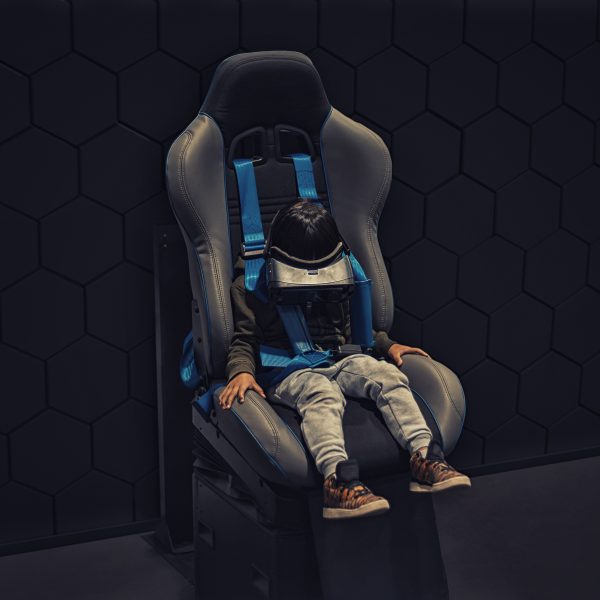How the neuroscience of memory failure may prevent fatal distraction

In March last year, Monash Associate Professor of Psychology Matthew Mundy found himself in unusual surroundings – the Victorian Coroner’s Court. He’d been summoned as someone who could be an expert witness into the tragic death of a child inadvertently left in a hot car. Associate Professor Mundy specialises in memory and forgetfulness.
The child’s name was Noah Zunde; he was 22 months old, and one of five children to have died in a decade in Victoria in similar circumstances.
“The coroner thought, ‘Enough is enough’, and called me as an expert witness,” Mundy says. “They found me because of my work on the science and neuroscience of memory failure. I was there to give the coroner some information on what would happen if a brain memory failure of this kind happens.”
Associate Professor Mundy’s input into the case has now led to him being at the forefront of a state government campaign called Fatal Distraction. Run through the Department of Education and Training, the campaign aims to build awareness in parents and educators about why children are sometimes left in cars with, according to the government, “potentially devastating consequences”.
It also outlines what parents can do to prevent it happening, and how educators (mainly at childcare centres) can help parents.
Despite the horrific backdrop, Mundy is glad to be involved. It means his deep research into the inner recesses of the human brain can possibly save lives.
“We’re taking neuroscience that’s been known about for a while, but using it to help a current problem.”
The circumstances of Noah Zunde’s death in the summer of 2015 were described by the coroner as a “perfect storm” of events that had conspired against his mother and led her to leave the little boy in her car, all day, on a 31-degree February day. Both the mother and her older daughter had been sick with gastroenteritis, leading to more sleep deprivation than usual for the mother of a very young child. The mother also told police she was unusually stressed because of the death of a pet, altering her elder daughter’s drop-off routine that day by taking her husband to the train first. She was, she said, “really wiped out” with exhaustion.
She got her daughter to primary school and Noah, unusually, had fallen asleep in a rear-facing capsule in the back, invisible from the driver’s seat. She drove him home, not remembering he was in the car – thinking he was at childcare – then drove to pick up him up from childcare later in the day only to realise what had happened.
“Any of us can be forgetful,” Mundy says. “We forget our car keys, we walk into a room and forget why we walked into it. There’s nothing wrong with that. It’s not ageing or dementia. It’s not a catastrophic warning sign of imminent cognitive collapse. It’s normal. But short-term memory or ‘working memory’ is quite limited in the brain; we can only remember so many things in the moment. So when our to-do list is very long – send an email, make a call, drop the kids off at childcare, post a letter – they all add up. Critically, in the moment of forgetting, your brain isn’t assessing the importance of the item on the list, it just gets lost.”
“You can blame the precursors like lack of sleep, but telling the parent of a small child that they should get more sleep isn’t a realistic message.”
When other stressors come into play, memory fails.
“Distraction is a classic one, particularly with parents of young children where you start to get into sleep deprivation, where brain chemistry means our cognitive capacity goes down. We become much worse at remembering things. The seven or eight items short-term memory can usually handle becomes five or six. Lack of sleep means you more quickly start to forget. Then stress has a similar impact on memory. We know the hormones involved in stress can interfere with how the brain remembers. Put these things together – sleeplessness, stress, distraction – and you’re describing the lifestyle of a parent with a young child or children.”
An extra risk factor is change of routine. A stable routine helps memory, while a sudden change in routine comes without the usual triggers that make the human brain remember.
This is why, he says, kids get left in cars. Some parents remember when they see a cue such as other children or prams. But some don’t. “You can blame the precursors like lack of sleep, but telling the parent of a small child that they should get more sleep isn’t a realistic message.”
Instead, Associate Professor Mundy has outlined a list of things parents and childcare workers can do.
Childcare workers can:
- talk to parents about ‘fatal distraction’, including at first-time parents’ groups
- talk to parents about how it can be avoided
- ask parents about family and social supports they can access if sleep-deprived
Parents, meanwhile, can:
- leave a bag, wallet or phone on the back seat next to the child
- put something of the child’s – a toy or backpack – in the front as a reminder
- install a mirror to be able to see rear-facing car seats
- create a mental list of things to do when leaving the car
- make it routine to open the back door of the car every time they get out, even if no child is in the back
Associate Professor Mundy hopes to begin talking to Standards Australia this year about getting alarms – which are available in other countries – installed in cars. This was also one of the Victorian Coroner’s priorities. When the car stops, the reminder alarm goes off.
This article was first published on Monash Lens. Read the original article
Popular

Policy
Practice
Quality
Provider
Research
Safety starts with supervision: responding to real risks in ECEC
2025-07-07 10:30:58
by Fiona Alston

Policy
Provider
Practice
Quality
Jay Weatherill appointed to co-lead urgent review into childcare safety in Victoria
2025-07-07 07:24:04
by Fiona Alston

Quality
Practice
Provider
Workforce
Reclaiming Joy: Why connection, curiosity and care still matter in early childhood education
2025-07-09 10:00:07
by Fiona Alston













